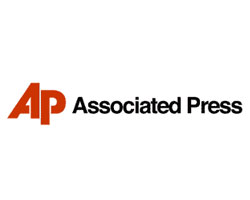Voters to Decide if Spokane, Washington Should Fine Coal, Oil Shipments

July 25, 2017 - Voters in Spokane, Washington will decide in November whether the city should fine railroad operators for certain coal and crude oil rail shipments through its downtown core, the latest community attempting to assert its local authority in the fight over fossil fuels.
The Spokane City Council voted Monday night to put the initiative to voters rather than passing it, after petition backers gathered enough signatures.
The ballot measure, if approved, would make rail shipments of uncovered coal or untreated crude oil a civil infraction, punishable by a fine of up to $261 per rail car, The Spokesman-Review reported. It would also restrict such shipments within 2,000 feet of schools, hospitals and the Spokane River.
Opponents warn of costly, legal challenges. If approved, it is certain to face a steep uphill legal fight, since the federal government regulates railroad operations and safety. The city's hearing examiner last fall concluded that "the proposed initiative is not enforceable because it is preempted by federal law."
Supporters say the city must act to ensure public safety and prevent environmental damage. They say a fiery derailment downtown that could cost millions of dollars in damage and put citizens' lives in danger. They also insist the measure won't conflict with federal laws.
"I think, legally, it is defensible," said City Councilman Breean Beggs, who provided much of the language for the petition. He believes local governments can regulate rail safety when there's a localized threat and federal agencies have been silent on the issue.
Last summer, following a fiery oil train derailment in Mosier, Oregon, on the Columbia River, the Spokane City Council approved a ballot measure to prohibit the shipment of crude oil or coal by rail. But the council withdrew it weeks later, citing the certainty of a successful legal challenge and a desire to work with railroads to prevent derailments.
Spokane Mayor David Condon said he's worried about what the measure could do to the city and the economy.
"This measure goes against independent legal review and sets the city up for significant, costly legal challenges that would divert already limited resources from programs and initiatives focused on areas that this attempts to address," Condon said in a statement.
Spokane, a railroad hub in eastern Washington for coal and oil trains moving into Washington state and along the Columbia River, isn't the only community trying to limit fossil fuels.
In December, the city of Portland, Oregon, banned new bulk fossil fuel storage terminals within city limits. The ban was considered the first of its kind for the range of products it sought to prohibit.
But last week, the Oregon Land Use Board of Appeals reversed the ban after a coalition of business, labor and oil industry groups appealed. The state board said the decision was unconstitutional. It agreed with opponents' arguments that the ordinance unduly burdens interstate trade in fossil fuels in violation of federal law.

